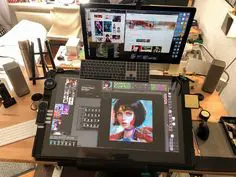
Navigating the Game Industry Recruitment Maze: Strategies for Success
- Admin
In the ever-evolving world of game development, recruitment stands as a critical process for both employers and job seekers alike. With the industry's rapid growth and the constant demand for talent, navigating the recruitment maze can be daunting. Whether you're a studio looking to hire top talent or a game developer seeking your next opportunity, understanding the intricacies of game industry recruitment is essential for success. Let's explore some strategies to streamline the recruitment process and maximize your chances of finding the perfect fit.
1. Define Your Needs:
Before diving into the recruitment process, it's essential for studios to clearly define their needs and requirements. Whether you're hiring for a specific role, project, or team, having a clear understanding of the skills, experience, and qualities you're looking for in candidates is crucial. This includes technical skills, soft skills, cultural fit, and any other criteria that are important for success in the role.
2. Build a Strong Brand Presence:
In a competitive job market, having a strong brand presence can make all the difference in attracting top talent. Studios should invest in building a compelling employer brand that highlights their culture, values, and unique selling points. This can include showcasing successful projects, promoting employee testimonials, and actively engaging with the game development community through social media, events, and industry partnerships.
3. Utilize Multiple Channels:
Gone are the days when recruitment was limited to traditional job boards and classified ads. Today, studios have access to a wide range of recruitment channels, including online job platforms, social media, industry events, and networking groups. By utilizing multiple channels, studios can reach a broader pool of candidates and increase their chances of finding the right fit for their team.
4. Foster Diversity and Inclusion:
Diversity and inclusion are not only ethical imperatives but also essential for driving innovation and creativity in game development. Studios should prioritize diversity and inclusion in their recruitment efforts by actively seeking out candidates from underrepresented backgrounds, creating inclusive job postings, and fostering a supportive and inclusive workplace culture.
5. Streamline the Hiring Process:
In a competitive job market, speed is of the essence when it comes to recruitment. Long and drawn-out hiring processes can lead to candidate drop-off and missed opportunities. Studios should streamline their hiring process by minimizing bureaucratic hurdles, providing timely feedback to candidates, and leveraging technology to automate repetitive tasks and streamline workflows.
6. Invest in Professional Development:
Recruitment doesn't end once a candidate is hired—it's an ongoing process that requires continuous investment in professional development and career growth. Studios should provide opportunities for employees to upskill, learn new technologies, and advance their careers within the organization. By investing in professional development, studios can retain top talent, foster loyalty, and build a strong and resilient team.
Conclusion:
In conclusion, game industry recruitment is a multifaceted process that requires careful planning, strategy, and execution. By defining your needs, building a strong brand presence, utilizing multiple channels, fostering diversity and inclusion, streamlining the hiring process, and investing in professional development, studios can attract top talent and build a team that drives innovation and success in game development. Similarly, job seekers can maximize their chances of finding the perfect opportunity by leveraging their skills, networking, and staying informed about industry trends and opportunities. With the right approach, game industry recruitment can be a rewarding and fulfilling experience for both employers and candidates alike.
